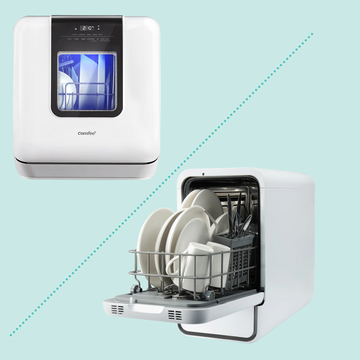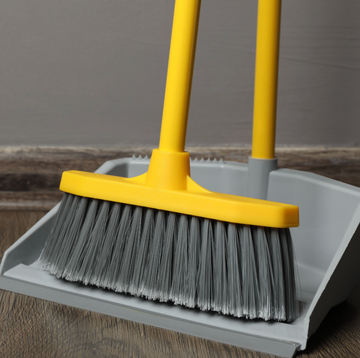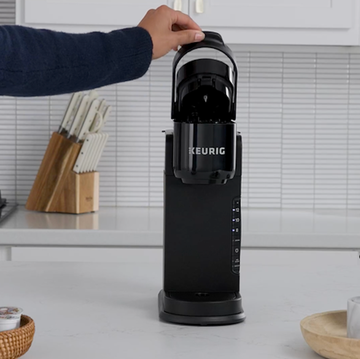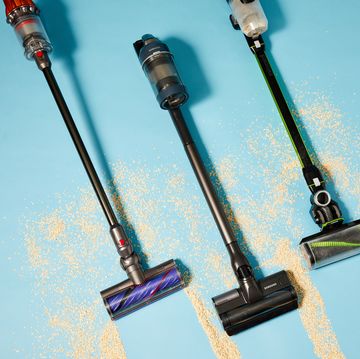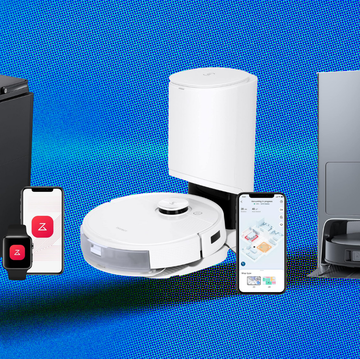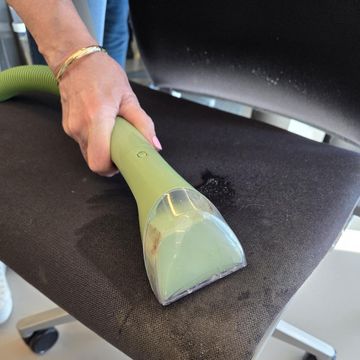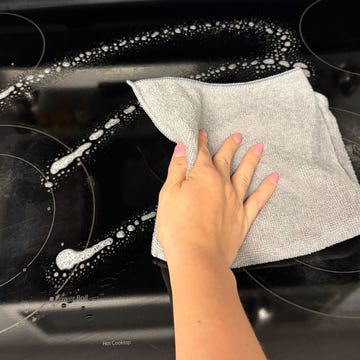1Over-loading your dishwasher.
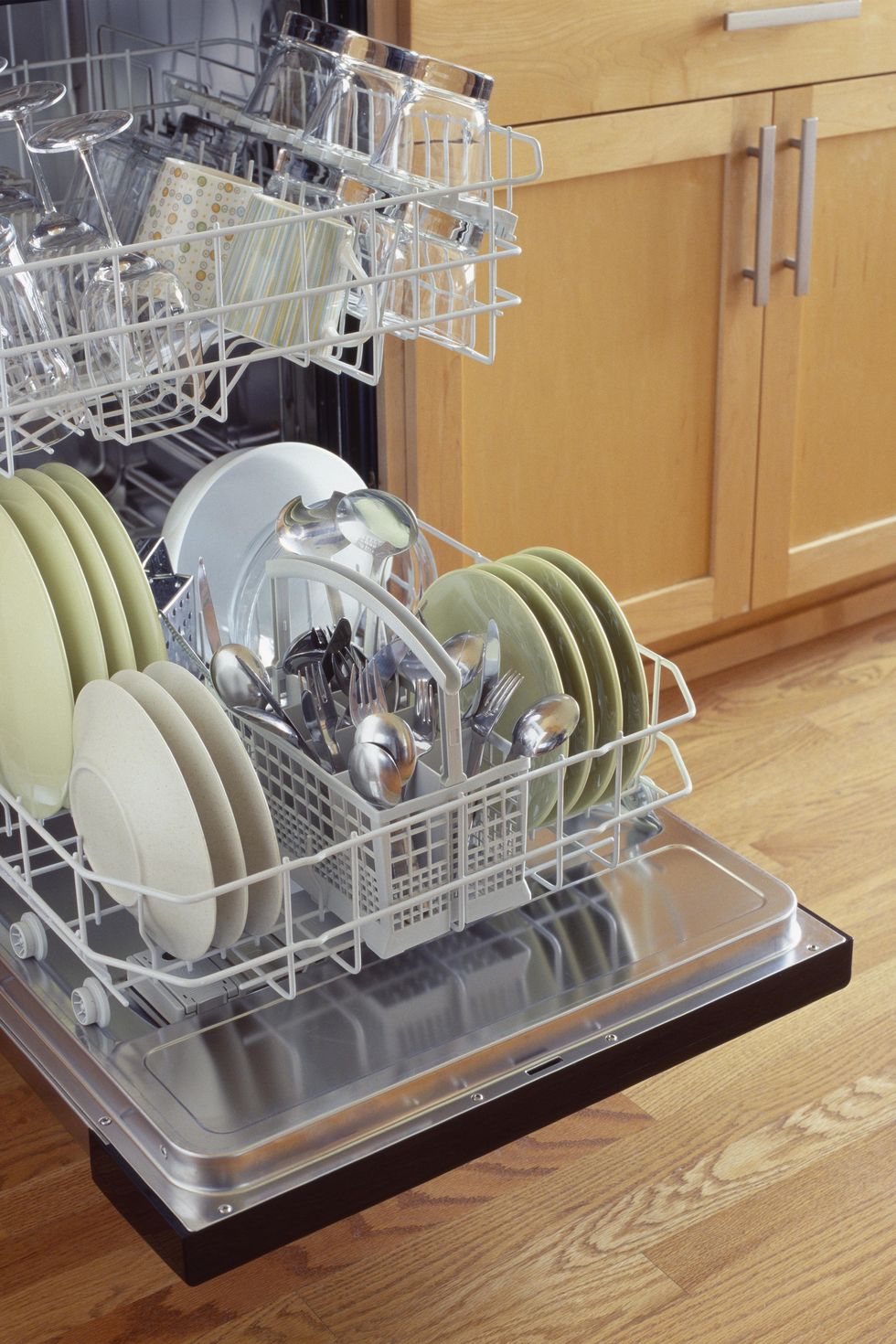 Getty
Getty 2Using dish soap on your cutting boards.
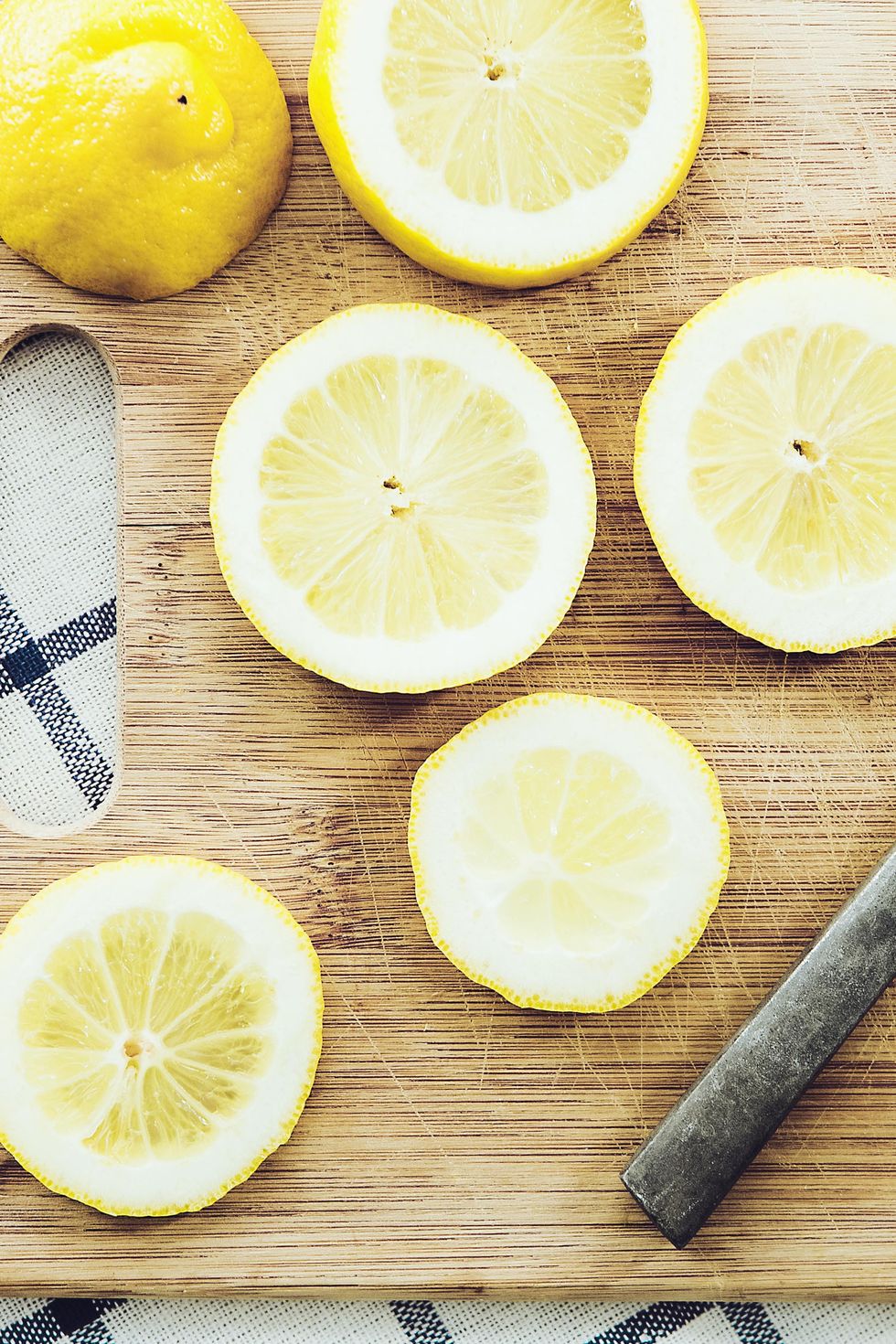 Getty Images
Getty ImagesWhen it comes to cleaning wooden chopping blocks, soap and warm water doesn't always cut it. After using one to slice 'n dice raw meat or poultry, soak it in a bleach solution to prevent cross-contamination when prepping your next meal.
Advertisement - Continue Reading Below
3Neglecting your biggest touch points.
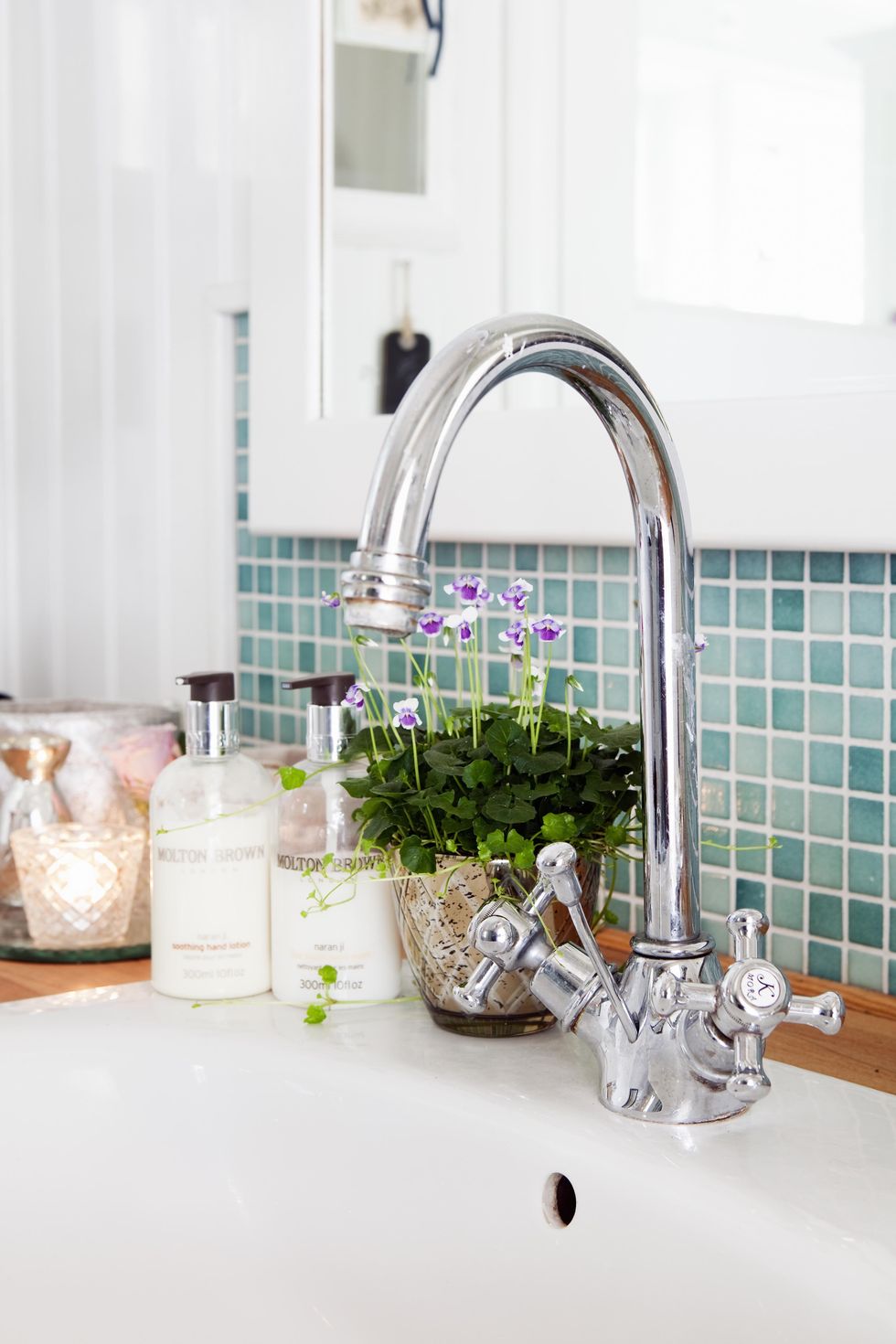 Getty
GettyFaucets, handles, and door knobs are some of the most-touched areas in your home, which is why they're also the germiest. Take to 'em with a disinfectant wipe daily to keep germs at bay.
4Getting lazy with the coffee pot.
Since your coffee maker is a hot bed for bacteria and mold, wash each and every removable part after each use — not just the pot. A bonus: Your coffee will taste better in the morning.
RELATED: How to Clean a Coffee Maker
Advertisement - Continue Reading Below
5Spraying furniture with polish.
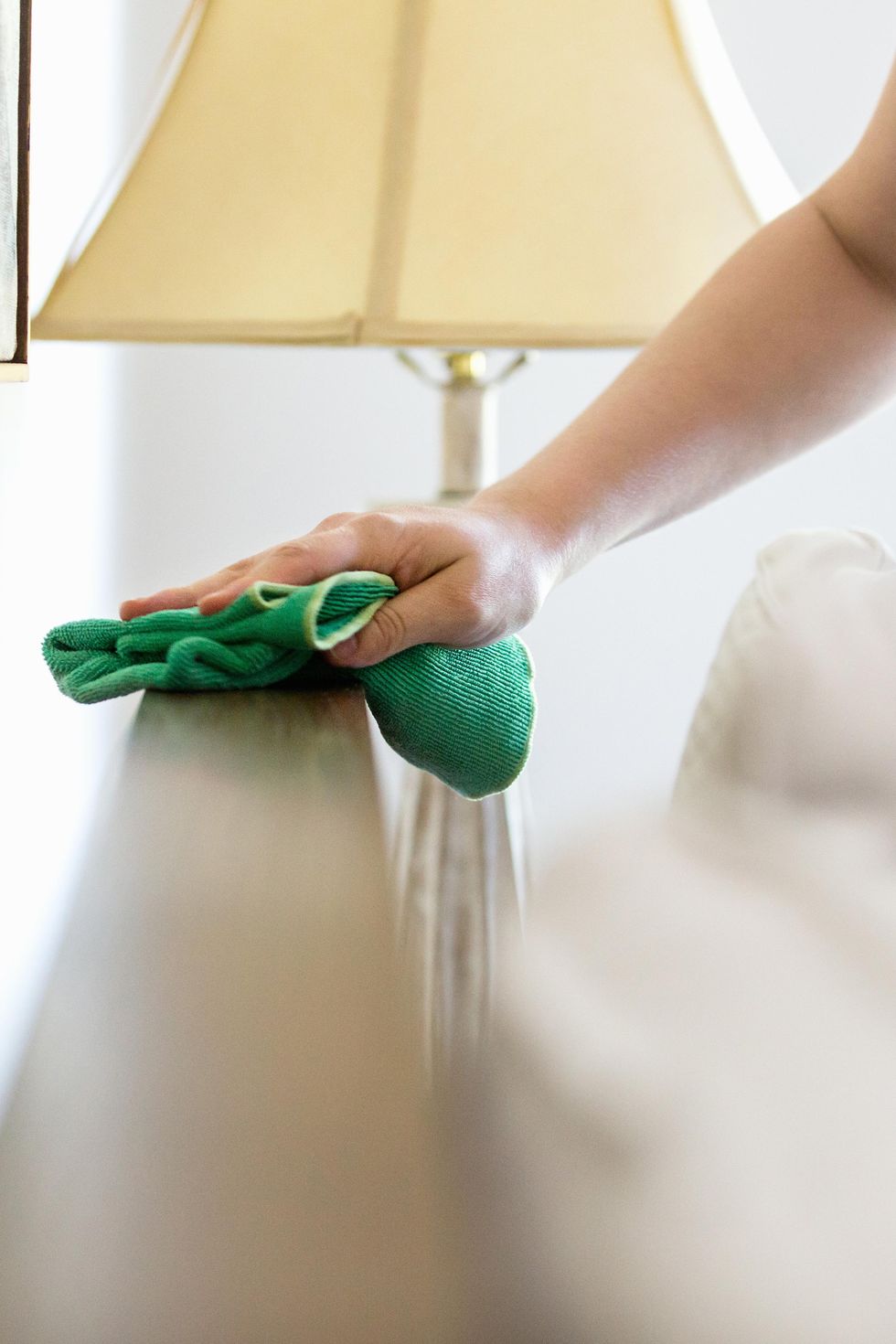 Getty
GettyWhen you spray furniture directly, it creates build-up that's tough to remove and attracts even more dust (womp, womp). To avoid this, spray your cloth with the cleaner, then rub the cloth on dusty surfaces.
6Using the same rag everywhere.
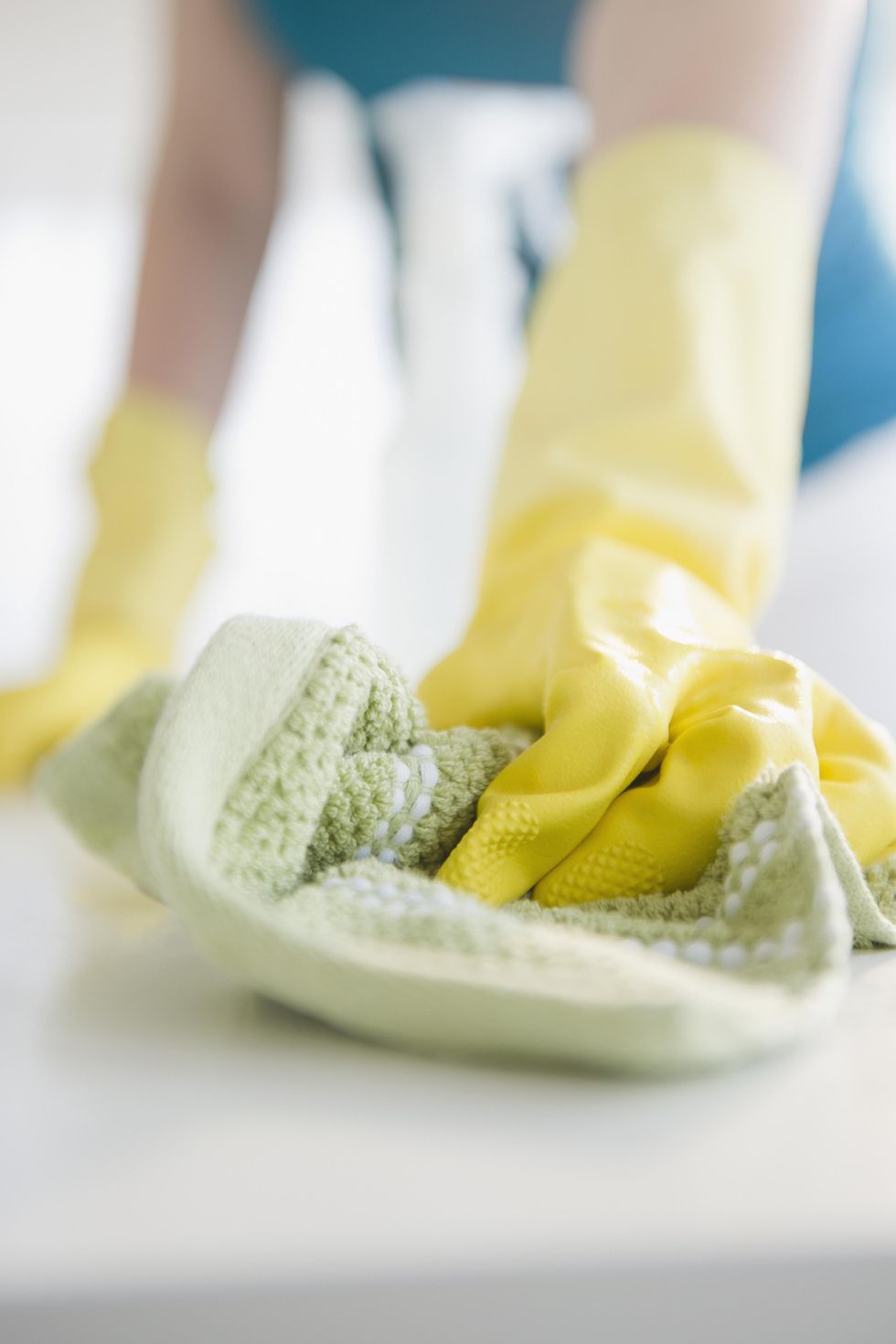 Getty
GettyStreaky surfaces? You might be over-using your cleaning cloth and spreading germs while you're at it. Even if your towel doesn't look old, it should be washed after each use since it's used on high-traffic (read: dirtier) areas.
Advertisement - Continue Reading Below
7Using a feather duster. Period.
 Westend61//Getty Images
Westend61//Getty ImagesWe'll give you a thumbs up for dusting, but a thumbs down for using a tool that only spreads dust from one surface to another. Use a microfiber cloth instead, which will grab — and hold onto — particles.
8Not dusting your windows.
 Getty
GettyBefore washing them, that is. If you forget to tackle the dust on your sills, any window cleaner that drips onto the frame will become a muddy mess of dusty liquid. A vacuum or microfiber cloth will tackle the mess nicely.
Advertisement - Continue Reading Below
9Storing a wet toilet brush.
 Getty
GettyWell hello, breeding ground for bacteria! Instead of just dropping your wet brush into the holder, set it across the seat so it can drip-dry over the bowl before putting it away for good.
10Forgetting your trash can.
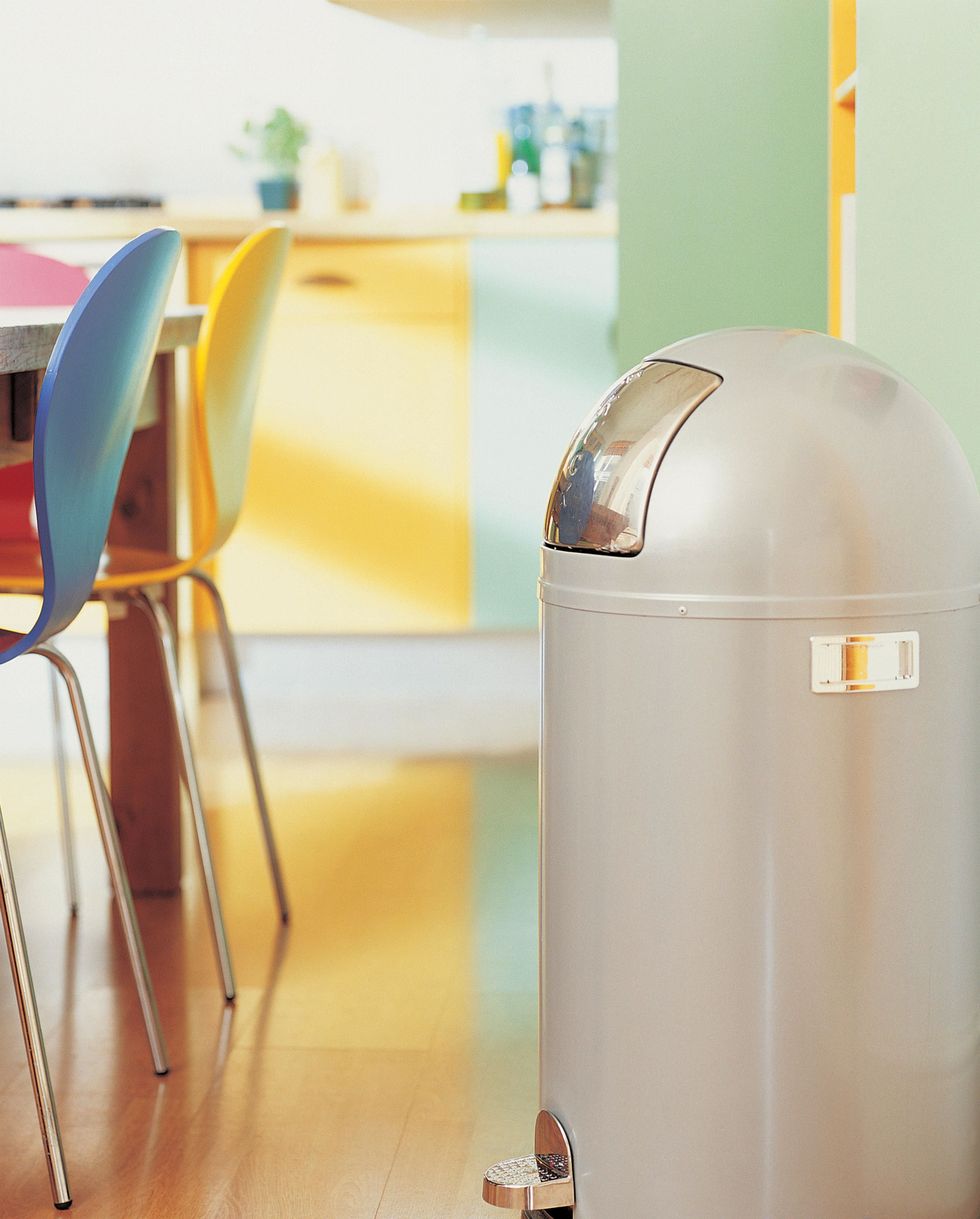 Getty Images
Getty ImagesIf you notice an unpleasant odor in your kitchen, it might be an indicator that you haven't clean your trash can in awhile. Wipe it down once a week with a cleaner containing bleach to keep nasty smells under control.
Advertisement - Continue Reading Below
11Rushing your tile cleaner.
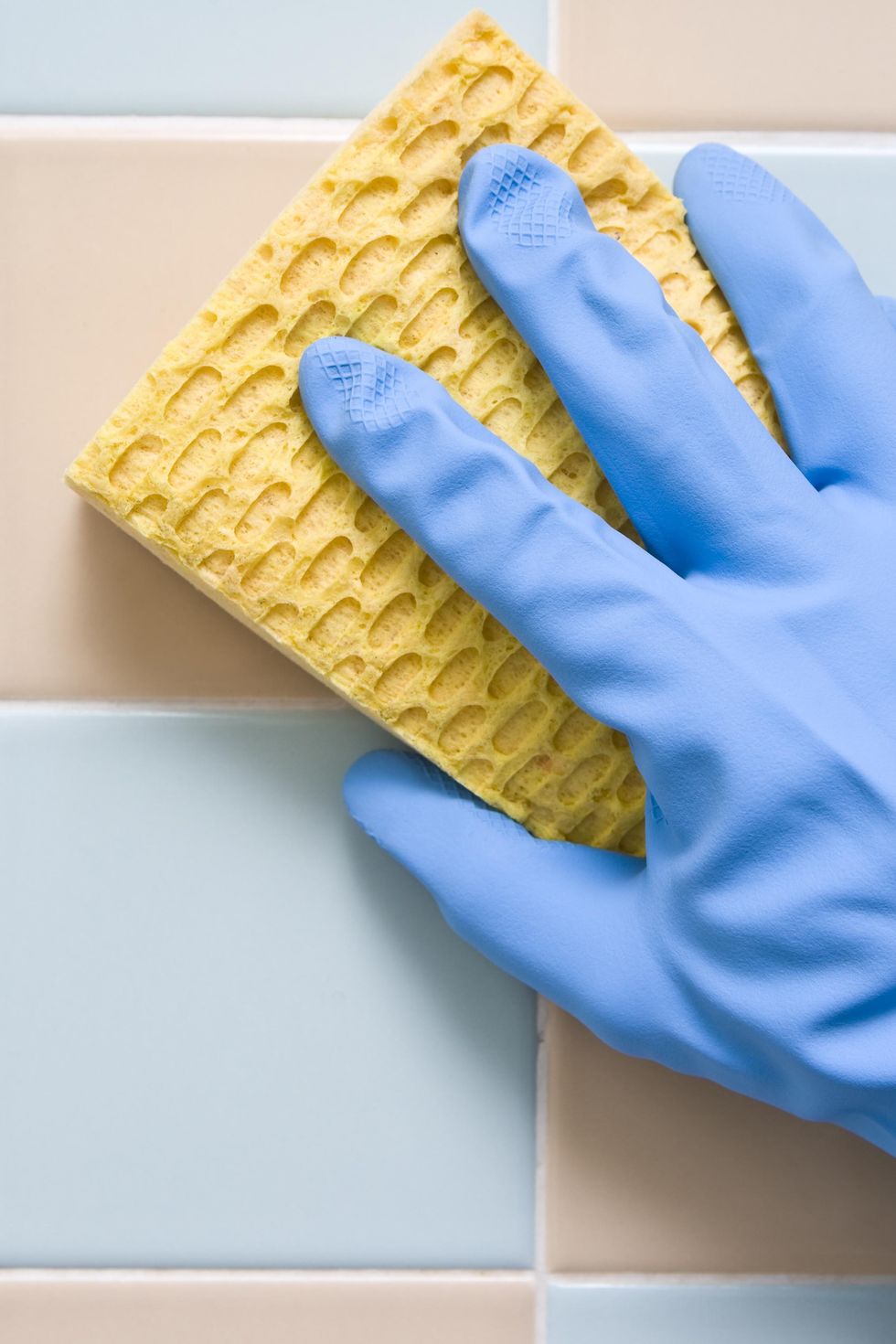 Getty Images
Getty Images 12Ignoring crumbs in crevices.
 Getty Images
Getty ImagesBefore you take to your keyboard with a disinfectant wipe, make sure you turn it over and tap out food crumbs first — or else you'll be stuck with an even bigger mess.
Advertisement - Continue Reading Below
13Using dish soap for everything.
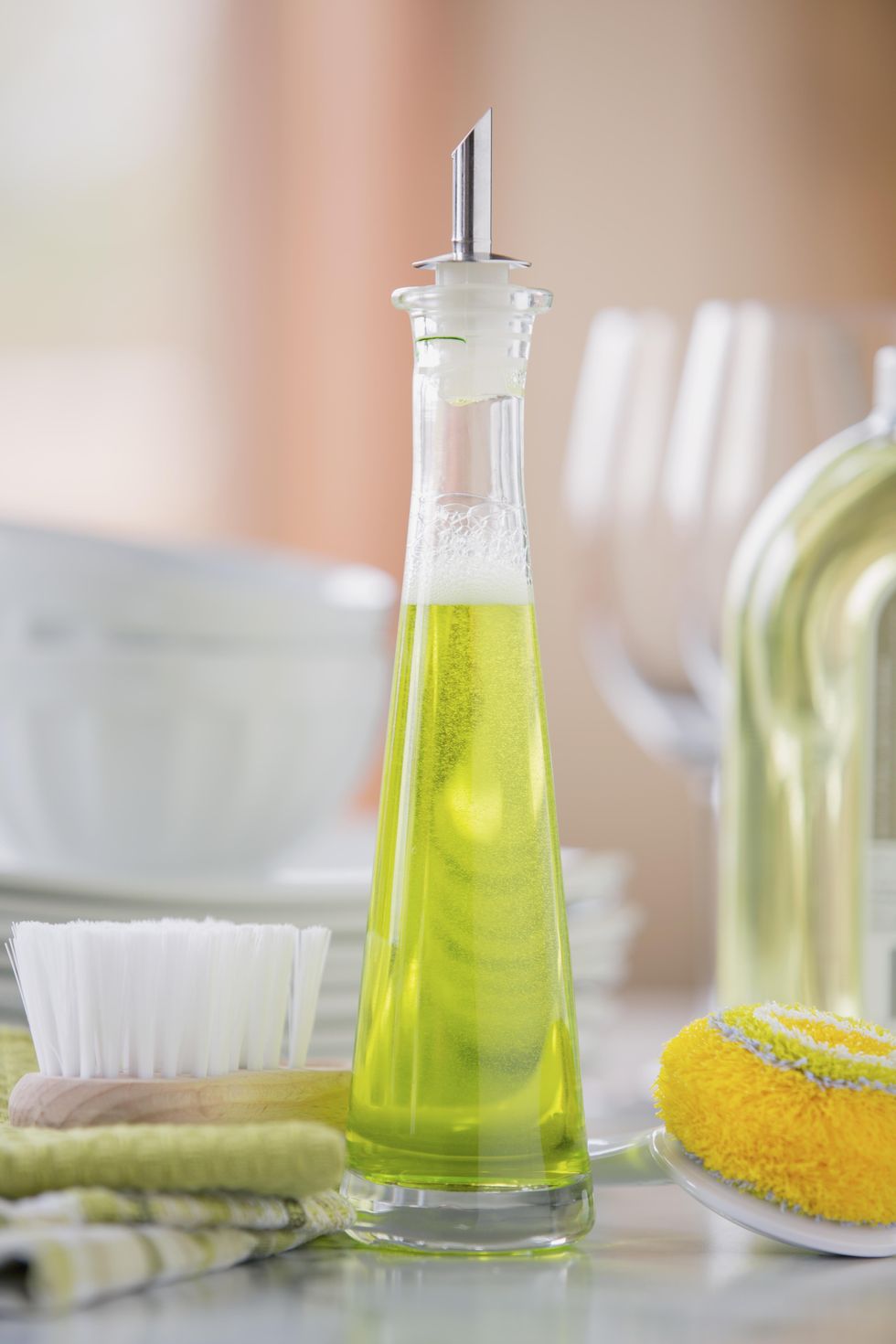 Getty Images
Getty ImagesWhile this grease-fighting product is powerful, it leaves streaks behind on surfaces that aren't plates and cups. So you should steer clear of using this liquid soap on your car windows and mirrors.
14Pouring in too much fabric softener.
 gerenme//Getty Images
gerenme//Getty ImagesWe get it: You want to sleep on the softest sheets possible. But using more product than is recommended by the manufacturer will have the opposite effect: "Just pouring it in usually adds too much and that can make fabrics stiff and scratchy, or even greasy, and reduce towels' absorbency," says Forte.
Advertisement - Continue Reading Below
15Using dirty sponges.
 Danielle Occhiogrosso Daly
Danielle Occhiogrosso DalyThese cleaning superheroes won't, in fact, be that helpful if you don't sanitize 'em every few days (and replace them every month). To do this, soak your sponge in water, place it in a microwavable dish, then heat it on high for a minute.
16Not cleaning blades separately.
 Getty Images
Getty Images Advertisement - Continue Reading Below
17Using too much laundry detergent.
 Good Housekeeping
Good HousekeepingRaise your hand if you've ever poured in a little extra detergent for an extra dirty load of laundry. Well it turns out if you use too much, the cleaner and your stains might not rinse out of clothes. Yikes!
18Keeping toothbrushes in the dark.
 David McGlynn//Getty Images
David McGlynn//Getty ImagesSure, the medicine cabinet might seem like a safe, germ-free environment, but the lack of light actually makes it a breeding ground for bacteria. Instead, keep your brush out in the light — just make sure you close the lid on the toilet when you flush.
Advertisement - Continue Reading Below
19Overlooking reusable bags.
 Getty Images
Getty ImagesEspecially grocery bags, which likely have lingering food bacteria on them. You should treat them like any other fabrics in terms of care, but just turn them inside out before tossing them into the washing machine.
20Washing windows when it's sunny.
 rclassenlayouts//Getty Images
rclassenlayouts//Getty ImagesEven though a warm, sunny day might be the most pleasant way to accomplish this chore, the heat will cause your cleaner to dry before you can finish cleaning — leaving streaks in its wake.

Lauren is a senior editor at Hearst. She was previously the senior editor at WomansDay.com and the home editor at GoodHousekeeping.com and HouseBeautiful.com. Her book club, ramen, and jean jackets are a few of her favorite things.

Amanda Garrity is a lifestyle writer and editor with over seven years of experience, including five years on staff at Good Housekeeping, where she covered all things home and holiday, including the latest interior design trends, inspiring DIY ideas and gift guides for any (and every) occasion. She also has a soft spot for feel-good TV, so you can catch her writing about popular shows like Virgin River, Sweet Magnolias, Hallmark Channel’s When Calls the Heart and more.
Advertisement - Continue Reading Below
Advertisement - Continue Reading Below
Advertisement - Continue Reading Below





